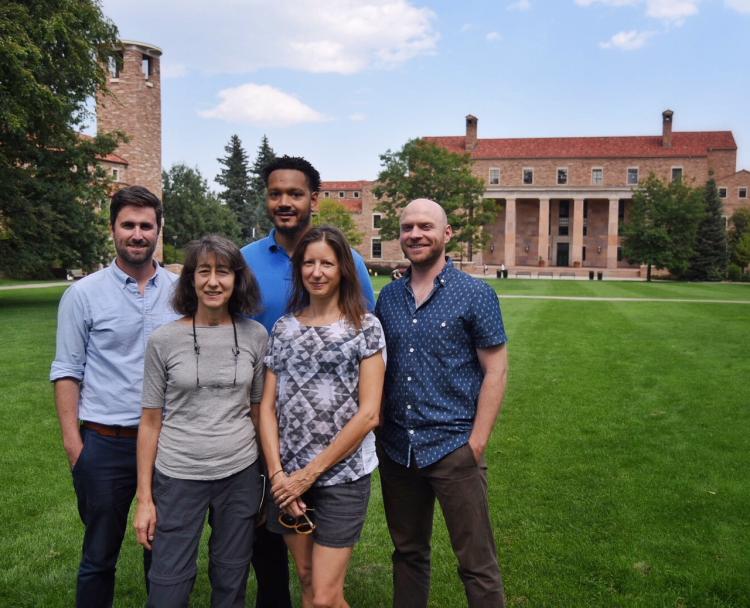Five award-winning journalists named Center for Environmental Journalism Scripps fellows

The new fellows include a CNN producer and nationally-known book authors and magazine journalists. Their work has appeared in such outlets as The Atlantic, National Geographic, The New York Times, Outside Magazine and more.
“My father, Ted Scripps, was concerned about the environment before he passed,” said Cindy Scripps, who first established funding for the program at CU in 1997. “It is a passion I have carried with me throughout my life. I feel that the need for this type of program is more acute than ever before. The environment is imperiled, and journalism is under pressure, so I think it’s critically important that we continue to fight for both.”
A new $2.47 million gift from Scripps will fund the fellowships for five years, starting with the incoming 2018-19 class of fellows.
“With this generous support, we will be able to increase the stipend for fellows by more than 25 percent, helping keep the program competitive with the best such programs in the nation,” said center Director Tom Yulsman. “Other enhancements include a pilot program to team students with fellows as research assistants.”
For over two decades, the fellowship program—housed in the College of Media, Communication and Information—has brought working journalists to campus for a full academic year, providing them with opportunities to expand their knowledge and capacity to report on critical environmental stories of the day.
“The program has equipped more than 100 journalists with new knowledge and skills. Their work during and after the fellowship has led to the preservation of public lands, government financial commitments and even an entire investigative news network whose work has led to changes in multiple Colorado laws,” Yulsman said.
During the program, they plan to explore issues ranging from overfishing in West Africa to how the American West is adapting to climate change.
“The fellows need as many resources as possible in order to take full advantage of the opportunity offered by the program,” Scripps said. “And I couldn’t imagine a better place for the fellowship program than Boulder. There are just so many resources for students and fellows, great faculty, and a very supportive environmental community.”
More on the 2018-19 fellows:
- Peter Brannen is a science journalist and author of the 2017 book, The Ends of the World, which was named a New York Times editor's choice and one the 10 best environment, climate science and conservation books of 2017 by Forbes.
- Chris Lett is a photographer and former producer and researcher for CNN, where he contributed to award-winning films and series and covered issues ranging from terrorism to the fallout over air pollution in Louisiana's Cancer Alley.
- Stephen R. Miller was a senior editor of environmental justice for YES! Magazine and the managing editor for a community newspaper based in Washington state, as well as an award-winning independent journalist covering climate change, energy, conservation, wildfires and environmental justice from the Sonoran Desert to Arctic Alaska.
- Hillary Rosner has traveled the world as a freelance journalist and editor writing about the environment. Her reporting has taken her from the rainforests of Borneo and the slums of Kenya to the deserts and subdivisions of the American West. She is a two-time winner of the AAAS-Kavli Science Journalism Award, as well as the recipient of an Alicia Patterson Fellowship.
- Elizabeth Royte is the author of Bottlemania: How Water Went On Sale and Why We Bought It, as well as two previous books—Garbage Land: On the Secret Trail of Trash and The Tapir’s Morning Bath: Solving the Mysteries of the Tropical Rain Forest—which were both named New York Times Notable Books of the Year.

